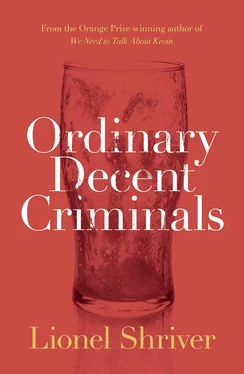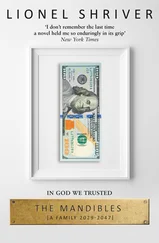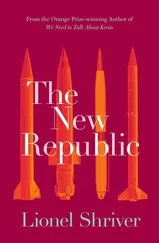‘Any novel about the Northern Ireland troubles that opens in the Bushmills whiskey distillery has clearly got a useful perspective … American author Lionel Shriver maintains a keen sense of proportion between the fabric of the Troubles and the individual lives of her three-dimensional characters; in addition, she’s caught the flavour and the language of the city where she’s lived since ’87 with astonishing deftness, without either showiness or romanticism’ London City Limits
‘A big read that never flags and that I pursued with ever-increasing delight … Ms Shriver writes a bouncing, buoyant prose that carries one along as merrily as a band of roisterers hell-bent for glory. And she has beautifully caught that air of desperate wryness that people on the edge of danger are supposed to exhibit. Her novel is as life enhancing as an optimistic outlook or a good laugh. Buy it and see’ Irish Sunday Press
‘“All people know about Northern Ireland is what they see on television,” says Bill Rolston, lecturer at the University of Ulster and part-time pulp authority. “[Troubles] novels, apart from being truly awful, help to perpetuate that ignorance.” Rolston does however pick out a few acceptable popular fiction examples. Troubles by Naomi May merited inclusion, alongside Seamus Heaney, in The Rattle of the North . Also spared is Ordinary Decent Criminals by an American woman named Lionel Shriver’ Guardian
‘This is a streetwise book, inasmuch as Shriver, an outsider, pretends to an insider’s authority on the situation she portrays. That she carries it off as well as she does, particularly at the level of personal relationships, counts as an achievement’ Irish Press
‘This is an exceedingly powerful, inspired novel. Shriver is an American living in Belfast, the setting for her engrossing story. She brings to this benumbed and blighted city an outsider’s eye and ear … Shriver’s writing is outstandingly lucid and bright, with an original blend of American and Irish whimsical irony. Commanding both the sweep of Irish politics and the nuances of human relations, she draws a splendid map for getting nowhere’ U.S. Publisher’s Weekly
‘ Ordinary Decent Criminals proposes an entire politics of paradox: people who fight for peace love to be at war. Estrin feathers nests in order to leave them. Farrell keeps himself intact for the pleasure of flirting with destruction. Only the author can triumph in such an arena, and Shriver does … Shriver’s prose, frequently gnomic and invariably unpitying, offers virtually none of those made-for-TV movie devices that neatly freeze-dry settings, heroes, subplots. Writing for the pleasure of her story, she allows the reader to fill in the lacunae there. And she rightly trusts herself to recreate a wide range of universes. In Female of the Species, she dealt with anthropologists studying African tribes; in Checker and The Derailleurs, with rock musicians in Astoria. Here she’s even bolder. Her Belfast is stripped of martyrologies, serving Estrin and Farrell as moonlit nights or certain Manhattan nightclubs do lovers in less ambitious, less convincing fiction’ New York Village Voice
To the Old Man:
Revenge is tribute
In case of difficulty with acronyms,
jargon, and the morass of Irish history,
the reader is urged to consult
the Glossary of Troublesome Terms
at the back of this book.
‘Happiness is often presented as being very dull but, he thought, lying awake, that is because dull people are sometimes very happy and intelligent people can and do go around making themselves and everyone else miserable. He had never found happiness dull. It always seemed more exciting than any other thing, with promise of as great intensity as sorrow to those people who were capable of having it’
Ernest Hemingway Islands in the Stream
Table of Contents
Cover
Title Page
Copyright
Praise for Ordinary Decent Criminals :
Dedication
Epigraph
Chapter One: Hot Black Bush
Chapter Two: Roisin Has Enthusiasms
Chapter Three: The Green Door, or Everybody Likes Lancaster
Chapter Four: Women on and Off the Wall
Chapter Five: Cape Canaveral on York Street
Chapter Six: Roisin’s Furniture Goes Funny
Chapter Seven: Constance Has Inner Beauty; About Farrell We Are Not So Sure
Chapter Eight: Big Presents Come in Small Packages
Chapter Nine: As You Are in Pieces, So Shall Your Cities Fragment
Chapter Ten: The Vector and the Corkscrew
Chapter Eleven: The MacBride Principles
Chapter Twelve: Americans Have Good Teeth
Chapter Thirteen: Checked Luggage, or The Long Fuck
Chapter Fourteen: Negaphobia, and Why Farrell Doesn’t Do Windows
Chapter Fifteen: Ireland, and Other Hospitals
Chapter Sixteen: The House in Castlecaulfield
Chapter Seventeen: The Fall of the House in Castlecaulfield
Chapter Eighteen: Form Over Weight
Chapter Nineteen: Notice-Notice
Chapter Twenty: Harder-Harder, More-More, Worse-Worse: Estrin Turns Into a Lamppost
Chapter Twenty-One: Chemical Irritation
Chapter Twenty-Two: The Saint of Glengormley
Chapter Twenty-Three: What Is So Bloodcurdling About a Swallow in Your Kitchen?
Epilogue: Boredom as Moral Achievement
Glossary of Troublesome Terms
About the Book: Teatime in London: Why I Spurn My Gerry Adams Mugs for the Cups From the John Harvard Library
About the Author
Also by Lionel Shriver
About the Publisher
chapter one
Hot Black Bush
Between them, pure alcohol coiled from the turned-back lid; the air curled with its distortion. Vaporous, the face stretched longer and thinner than the pillar it began. The shimmer off the vat worried his expression, tortured his eyebrows in the heat, further emphasizing a figure already overdrawn: too wild, too skinny, too tall.
As she stood on tiptoe to lean over the wooden tub, on the other side the tall man saw only the dark tremble of a girl’s unruly hair. He wondered at letting children tour a distillery. Then, why shouldn’t they be confirmed early, sip at the chalice—Bushmills was the real Church of Ireland, after all. Later, he would catch sight of her down the walk toward bottling and not recognize the grown woman in black leather bouncing the red motorcycle helmet against her thigh. Though she was barely over five feet, at any distance her slight proportions created the optical illusion that she was not small, rather, farther away.
The man did not need to clutch the rim, but leaned at the waist to inhale. When the girl looked up he saw she was not ten or twelve but at least twenty. Their glances met; both took a deep breath. The man reared back again, snapping upright; the woman went flat on her feet. Tears rose and noses began to run. The fumes went straight to the center, acupuncture. The staves of the cavernous room warped cozily around them. The man could no longer remember what had so concerned him moments ago; for the first time in months he felt his face relax. Across the tub, she watched the lines lift from him and decided he was not fifty, as she’d first thought, but thirty-two or -three. In fact, if she’d asked him just then how old he was, he might have claimed yes, he was thirty-three, because the last ten years had been trying and he could not remember anything trying while breathing over a washback with this pretty girl. Christ, he missed whiskey.
“Better than shots,” she admitted. “This is my second time through.”
The alcohol evaporated from his head. He recalled what he’d been sorting out, and returned to one and a half million paupers would never get a full vote in the EEC . Her twang was unmistakable: bloody hell, she was American.
Читать дальше












